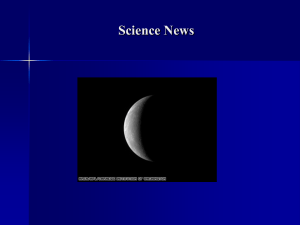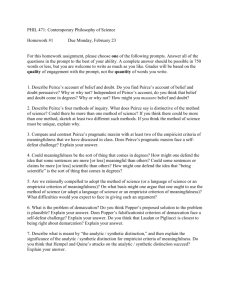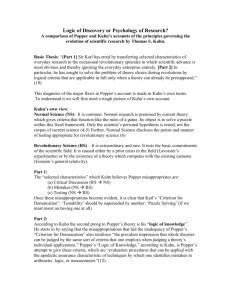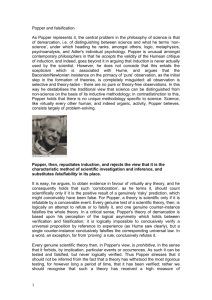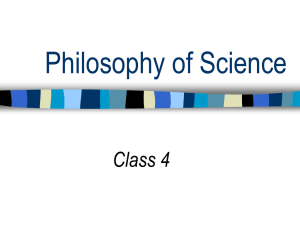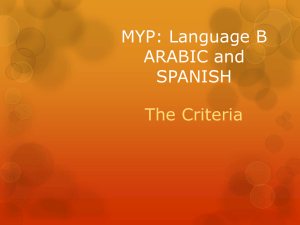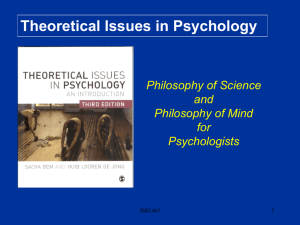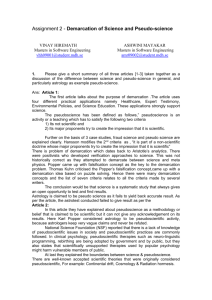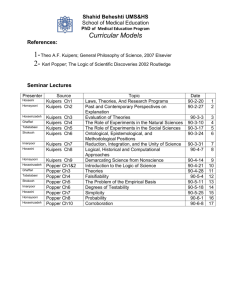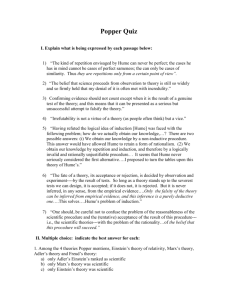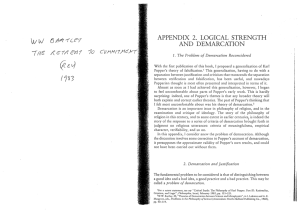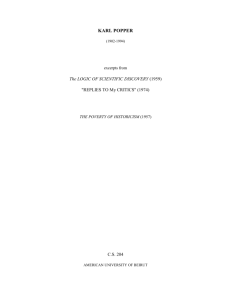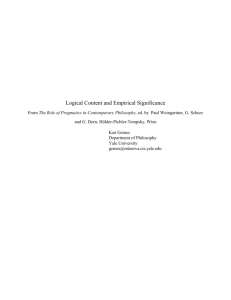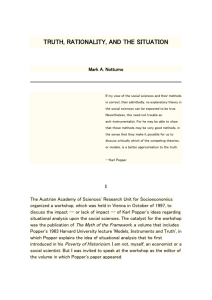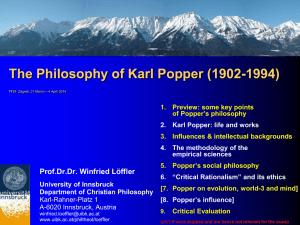Science versus Pseudo-science: The problem of demarcation
advertisement
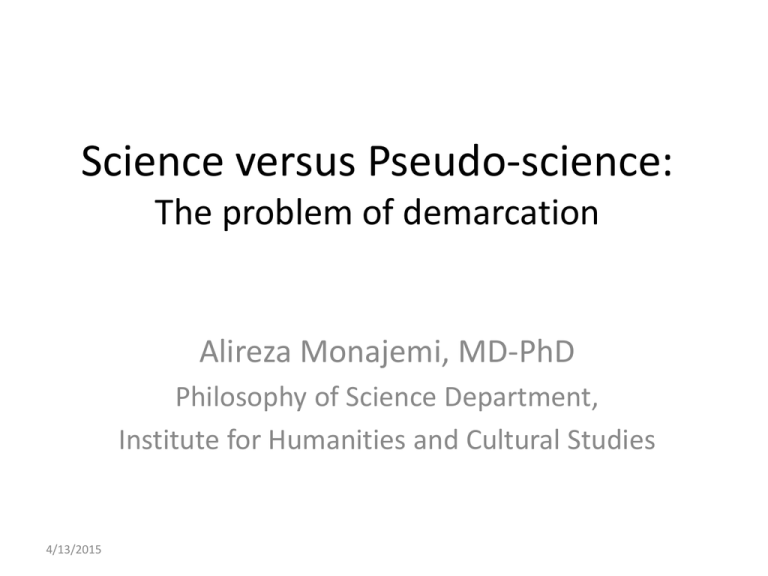
Science versus Pseudo-science: The problem of demarcation Alireza Monajemi, MD-PhD Philosophy of Science Department, Institute for Humanities and Cultural Studies 4/13/2015 The importance of the problem Clinical setting Certification Research 4/13/2015 What is science? 4/13/2015 The straightforward answer Biology Physics Medicine Science 4/13/2015 • we are asking what common features all the things on that list share? = • what it is that makes something a science? 4/13/2015 The problem of demarcation Science Pseudoscience 4/13/2015 • Science is just the attempt to understand, explain, and predict the world we live in • Although these are the features of science, but in this sense astrology are also included 4/13/2015 Philosophy of science on the problem of demarcation 4/13/2015 Vienna circle 4/13/2015 Vienna circle • The distinguishing features of science lie in the particular methods scientists use to investigate the world. • One of the key problems in philosophy of science is to understand how techniques such as experimentation, observation, and theoryconstruction have enabled scientists to unravel so many of nature's secrets. 4/13/2015 Vienna circle • Meaningfulness (tautology v.s empirical) • Verification • Sense data 4/13/2015 Fact, hypothesis and theories 4/13/2015 Theory • Theory is a conceptual framework that explains existing observations and predicts new ones. • It can incorporate facts, laws, inferences, and tested hypotheses 4/13/2015 Hypothesis • : A tentative statement about the natural world leading to deductions that can be tested. • If the deductions are verified, the hypothesis is provisionally corroborated. • If the deductions are incorrect, the original hypothesis is proved false and must be abandoned or modified. 4/13/2015 Fact • In science, an observation that has been repeatedly confirmed and for all practical purposes is accepted as “true.” • Truth in science, however, is never final and what is accepted as a fact today may be modified or even discarded tomorrow. 4/13/2015 Popper • Two major criticisms of Vienna circle’s criterion of demarcation: • The problem of induction (Russell story) • Exclusion of scientific theories 4/13/2015 Popper’s criterion of demarcation • Falsifiability • ‘It will rain or not rain here tomorrow’ will not • be regarded as empirical, simply because it cannot be refuted; • whereas • the statement, ‘It will rain here tomorrow’ will be regarded as empirical. 4/13/2015 Popper’s criterion of demarcation • Theories are, therefore, never empirically verifiable. • System as empirical or scientific only if it is capable of being tested by experience. These considerations suggest that not the verifiability but the falsifiability of a system is to be taken as a criterion of demarcation. 4/13/2015 Popper’s criterion of demarcation • it must be possible for an empirical scientific system to be refuted by experiment. 4/13/2015 4/13/2015 Science 4/13/2015 Pseudoscience e.g. Marxism or psychoanalysis Popper versus Vienna circle • Vienna circle • Popper • Meaningfulness • Meaningfulness • Empiric • Empiric • Verifiability • Falsifiability • Exclusion of theories • Inclusion of theories 4/13/2015 Lakatos criticism of Popper • Science is not some propositions but science includes some research programs. • Cross sectional studies is not enough to show that a research program is scientific or not. 4/13/2015 Lakatos criterion for demarcation • ] Progressive scientific theories are those which have their novel facts confirmed • and • degenerate scientific theories are those whose predictions of novel facts are refuted. 4/13/2015 Lakatos criterion for demarcation • a theory is pseudoscientific if it fails to make any novel predictions of previously unknown phenomena, in contrast with scientific theories, which predict novel fact(s).[ 4/13/2015 Thagard critics of demarcation • The case of Cold fusion • A theory could meet all the previous criterion but still remain unscientific. 4/13/2015 Thagard Criterion of demarcation Research group Grant holders and policy makers Public Scientific community 4/13/2015 Step 1 • Determine the proposition you encounter is a theory, or a hypothesis. 4/13/2015 Meaningful Empiric Falsifiable Progressive Authentic 4/13/2015 Two different way Traditional medicine 4/13/2015 As a theory As a hypothesis
